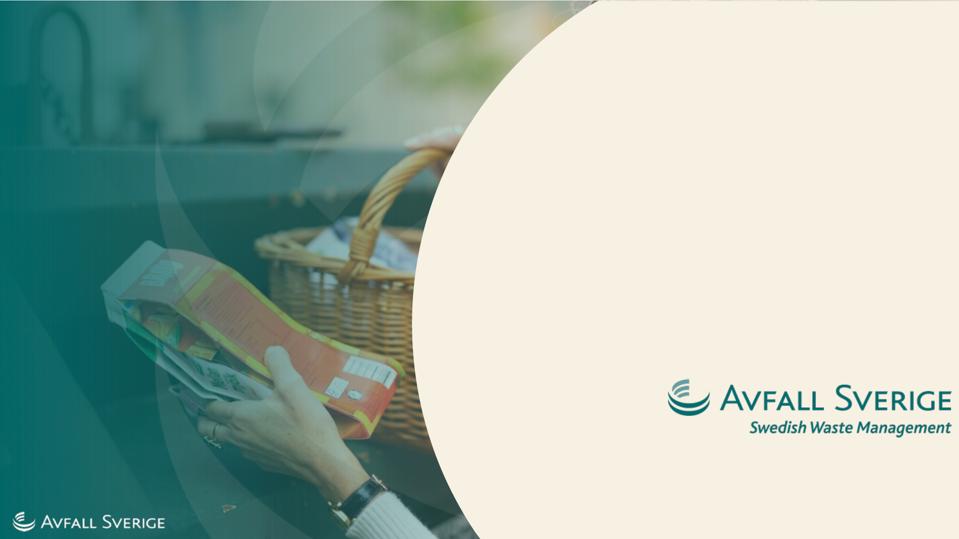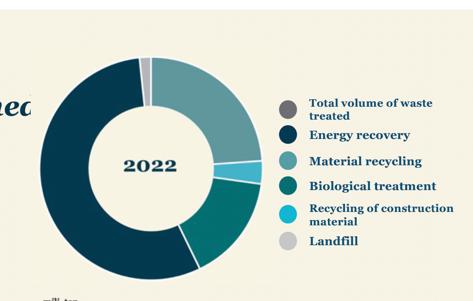EPL had productive meeting with Avfall Sverige advisor Jon Nilsson Djerf, M.Sc. in their office in Stockholm, while the main office of association is in Malme and has near 25 people of staff.
Avfall Sverige – is the trade association for the waste management and recycling sector in Sweden. It was founded in 1947 and has membership. There are two categories of members at Avfall Sverige:
• Municipalities, municipal enterprises, municipal associations, etc. whose work is based on public duties and tasks.
Associate members are private sector stakeholders, including consultants and suppliers of services and equipment.
Avfall Sverige vision is Zero Waste. And waste heirarcy – is a key tool to achieve it.
Avfall Sverige’s mission:
– Influence waste management issues and problems through referrals, written submissions, personal meetings, etc. on national and international levels.
– Develop waste mamangement potential and capacities of their members through consulting, courses, conferences, projects,reports, etc.
– Cooperate via working groups, networks, organizations, etc. locally, regionally, nationally, and internationally on waste management issues.
In 2022 Swedish population generated 5million tonnes of waste and < 1 % went to landfills. Sweden has landfill tax (since 2000) which increased to SEK 634 per tonne in 2023.
The types of municipal waste operations are destribed below:
For municipal waste the following instrastructure exists:
– 2.5 million pick-up points
– 562 recycling (or collection) centres with 28 million visits per year.
Sweden operates 35 incineration plans which are providing central heating to households. 2.5 million tonnes of residual waste directed to incinerators for energy recovery provide district heating to 1 200 000 households and electricity to 700 000 households. There are no plans to build new incinerators and current goal is to divert plastic waste from incineration (by increasing its separate collection and waste prevention ). 6 % of Swedish GHG emissions originate from incineration. Recent changes in the European electricity market have made the Swedish Parliament abolish the waste incineration tax introduced in 2020. The tax was set to SEK 75 per ton in 2020 and increased gradually to SEK 172 per tonne by 2022 (exemptions: hazardous waste, biofuels or animal-by-products). The goal of the tax is to increase recycling rates and promote a more efficient resource handling.
The responsibility of main actors is the following:
Municipalities are responsible for collection and treatment of household waste and packaging (only collection since 2024), provision of information to local population, conduct of waste prevention activities.
The cost for waste management services for municipalities is recouped through waste charges, which are set by the municipal council. For instance, A Swedish single-family household paid an average of SEK 2,542 in waste charges in 2022, apartment households paid an average of SEK 1,528 in 2022.
Producers are responsible for financing collection and treatment of waste under Extended Producers Responsibility (EPR), producers’ costs are recouped through a price of the product.
Companies have to take care of their own waste.
EPR systems is obligatory for such waste streams: cars, tires, medicines, WEEE, batteries, packaging and newspapers. Since 2023 the EPR scheme covers tobacco and filters, wet wipes, balloons, fishing equipment. EPR for packaging waste will undergo changes which will result in shifting the burden of collection of packaging waste from producers to the municipalities, as 30% of packaging waste are not separately collected .
Sweden is facing the new challenges –such as new targets for recycling -55% until 2025 and 60% until 2030, and packaging waste – 70% until 2030. From 2023 its obligatory to collect food waste and textiles from 2025. New amendments to Swedish waste legislation foresee that municipalities should be responsible for collection of waste covered by EPR schemes collection, while producers are responsible for their recycling. 100% of residential buildings or areas should have facilities for waste collection by 2027. Sweden has to launch compulsory collection of food waste from 2024 and 70% of food waste should be collected by 2029.
Every municipality has few people in staff working on waste management issues and their numbers differ depending on the population of the municipality. In Stockholm municipality near 300 people of staff are dealing with waste management, while its population is near 1 mln. Stockholm is divided into3 areas where 3 different private companies are responsible for waste collection and treatment, and they are selected on the basis of procurement procedures. Near 60 % of household waste in municipalities is collected by private companies selected on the competitive basis, and 40% of household waste is collected by municipal waste companies.
I
n Sweden the deposit system is effectively in operation, it was organized by main supermarkets and beer producers and through such system mainly PET bottles, aluminium cans are collected.
The biological treatment of food waste at Swedish anaerobic digestion and composting
plants amounted to 459,100 tonnes in 2022. Collection is food waste is a new priority for municipalities. The main purpose of biological treatment of food waste is the circulation of nutrients as a means of closing the eco-cycle. Anaerobic digestion is the most common method of treating food waste in Sweden. Anaerobic digestion produces biogas, which consists mainly of methane and carbon dioxide. Biogas is a renewable source of energy. Following upgrading, whereby carbon dioxide is removed, it can be used as a vehicle fuel or to replace fossil gas in industry. It can also be used for heating or electricity generation. Anaerobic digestion also produces digestate, a fertiliser with a high nutrient content. Just under 1.8 million tonnes of digestate were produced in 2022. 99.8% of this organic fertiliser was used in agricultural land. Using digestate instead of mineral fertiliser puts plant nutrients back into the eco-cycle and reduces the need for e.g. imported phosphorus. Digestate is an important fertiliser for increasing organic farming in Sweden, which is a goal of the National Food Strategy for Sweden.
Organic waste is treated through composting system and near 300 000 tones of composting soil is generated annually.
Avfall Sverige’s budget consists in half from mebership fees paid by its members (municipalities mainly) depending on the population of the member and in half from fees for participation in online and offline courses that Avfall Sverige conducts for its members.
Avfall Sverige employee has just started active participation in SIDA funded project on helping Ukraine to deal with waste problems. EPL will inform you more about this project later.



